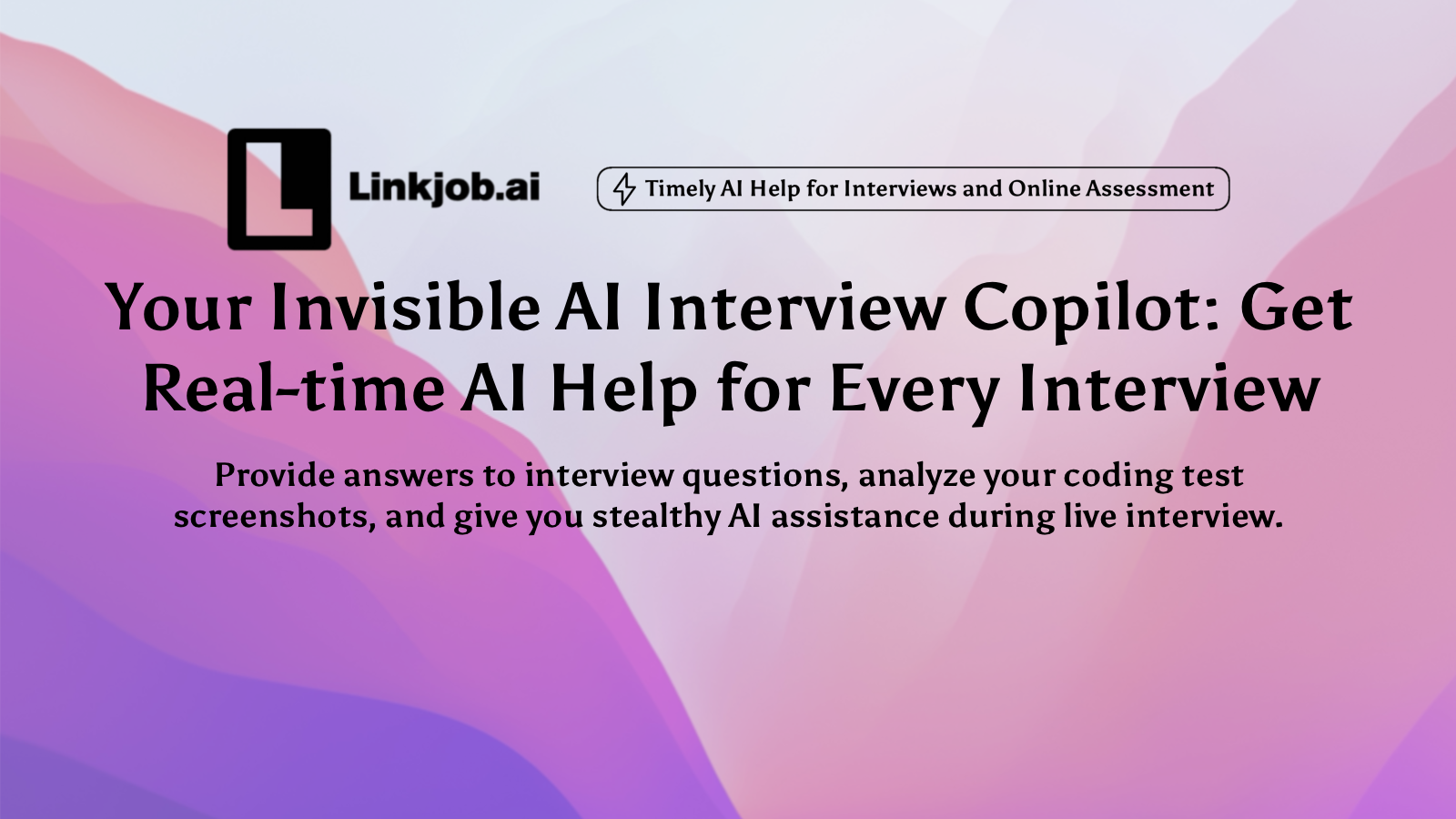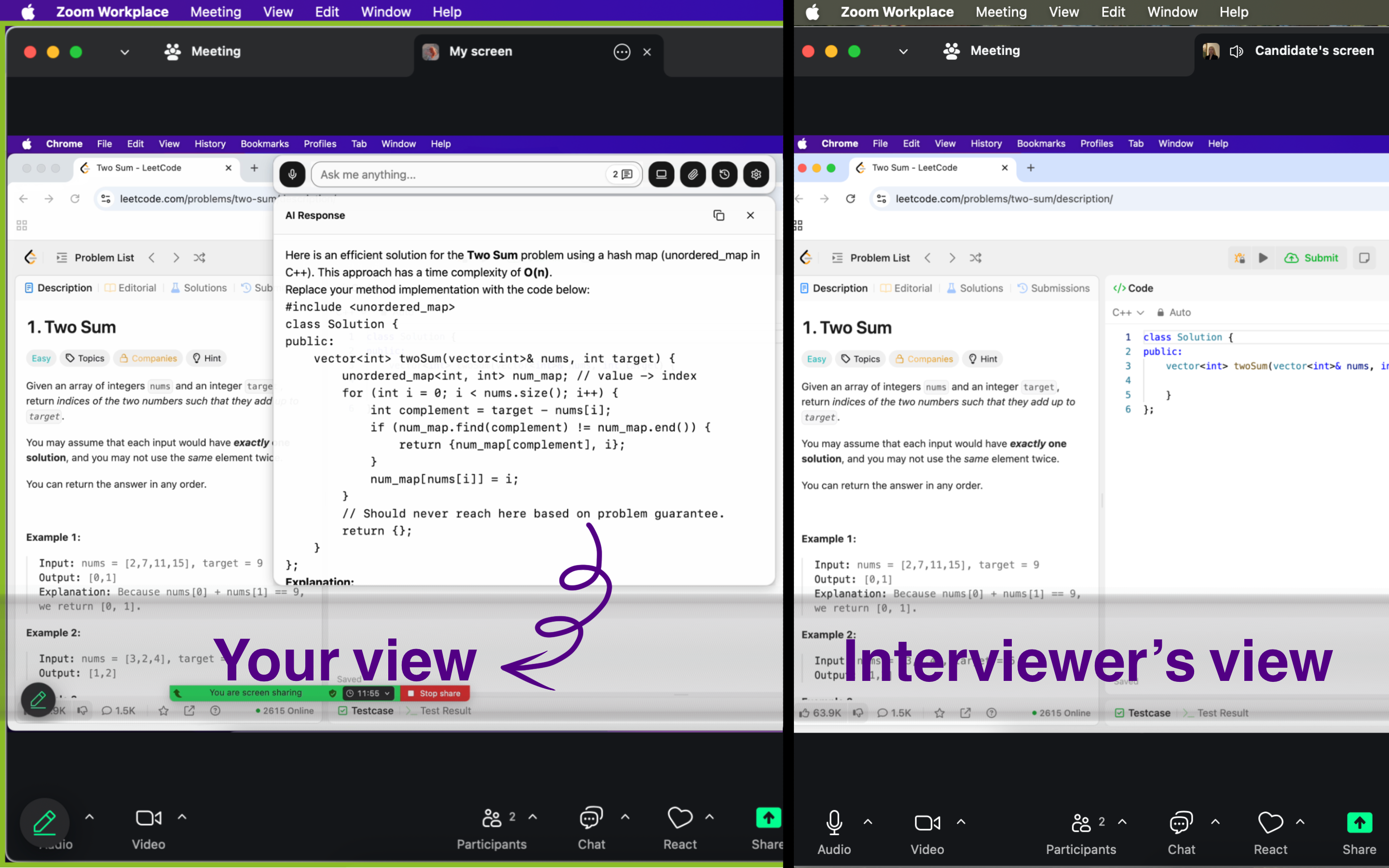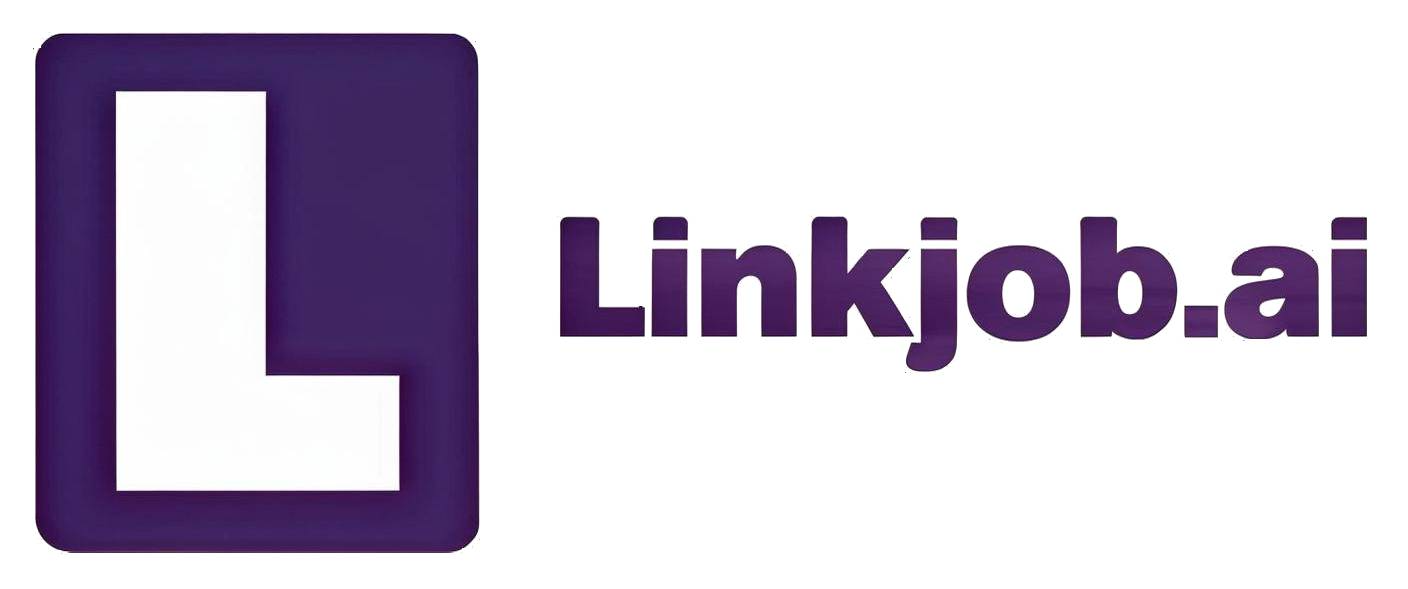My Ultimate Cheat Sheet for Performance Marketing Interview Questions and Answers

I know landing a job in performance marketing feels tougher than ever. Companies want people who can answer tough questions and prove their skills on the spot. And the demand for talent keeps rising.
I’m really grateful to Linkjob.ai for helping me pass my interview, which is why I’m sharing my interview questions and experience here. Having an undetectable AI interview assistant indeed provides a significant edge.
Many candidates worry about tricky performance marketing interview questions and answers or freezing up during interviews. I believe smart prep and the right support make all the difference.
Interview Questions and Answers
Technical Questions
When I prepare for interviews, I always expect technical questions that test my hands-on skills. Interviewers want to know if I can run campaigns, analyze data, and use the right tools. Here are some of the most common technical performance marketing interview questions and answers I’ve seen lately:
Which performance marketing channels have you used, and which do you find most effective?
I talk about my experience with Google Ads, Meta Ads, and programmatic platforms. I explain why I choose certain channels for specific goals, like using Meta Ads for retargeting or Google Ads for high-intent search traffic.How do you set and measure KPIs for your campaigns?
I mention KPIs like conversion rate, CTR, ROI, and CAC. I describe how I use Google Analytics and Tableau to track these metrics and adjust campaigns based on real-time data.Describe a successful campaign you managed. What strategies did you use?
I share a story about optimizing a campaign with A/B testing, audience segmentation, and creative refreshes to fight ad fatigue. I always include numbers, like “We increased conversion rate by 22% in three weeks.”What tools do you use for tracking and analyzing performance?
I list tools like SEMrush, Google Data Studio, and Facebook Ads Manager. I explain how these tools help me monitor results and make quick decisions.How do you handle underperforming campaigns?
I talk about reviewing targeting, testing new creatives, and analyzing keyword performance. I also mention using customer feedback to guide improvements.
Tip:
I always prepare examples that show how I use data to solve problems. Interviewers love hearing about real results.

Here’s a quick table I use to organize my technical answers:
Question Type | My Approach | Example Metric |
|---|---|---|
Channel Selection | Match channel to audience and goal | CTR, Conversion Rate |
KPI Measurement | Use analytics tools, set benchmarks | ROI, CAC |
Campaign Optimization | A/B testing, creative refresh, segmentation | Conversion Rate |
Tool Usage | Integrate platforms for reporting and analysis | Google Analytics |
Troubleshooting | Data review, feedback, creative updates | Lead Quality |

Strategic Questions
Interviewers want to see how I think about the big picture. Strategic performance marketing interview questions and answers often focus on how I use data, balance goals, and adapt to new trends.
How do you balance brand building with performance marketing?
I explain that I use the Hook Model in marketing frameworks for habit-forming campaigns and combine it with brand storytelling. I show how I measure both short-term conversions and long-term brand lift.How do you use AI in your marketing strategy?
I share examples of using AI tools for audience segmentation and real-time optimization. I talk about how AI helps me personalize campaigns and automate bidding.What should brands keep in-house versus outsource?
I discuss how I decide based on team skills, cost, and the need for speed. I mention that creative and data analysis often work best in-house, while specialized tasks like influencer outreach can be outsourced.Describe a time you turned insights into action.
I use the STAR method: I explain the situation, the task, the action I took, and the result. For example, I once spotted a drop in conversion rate, identified checkout friction, and worked with the dev team to simplify the process. Conversions jumped by 18%.
Note:
I always structure my answers using frameworks like STAR or Problem-Solution-Benefit. This keeps my stories clear and focused.
Here’s a list of frameworks I use for strategic answers:
STAR Method (Situation, Task, Action, Result)
Hook Model (for habit-forming campaigns)
Pirate Metrics (AARRR: Acquisition, Activation, Retention, Referral, Revenue)
STEPPS (for viral marketing)
Lean Analytics Stages (for scaling campaigns)
Behavioral Questions
Behavioral performance marketing interview questions and answers help interviewers understand how I work with others and handle challenges. These questions focus on leadership, teamwork, and adaptability.
Describe a time you had to take a leadership role unexpectedly.
I talk about stepping up when my manager was out, leading a campaign launch, and keeping the team motivated.How do you make decisions under pressure?
I share how I prioritize tasks, rely on data, and communicate clearly with my team.Can you give an example of resolving a conflict within your team?
I explain how I listened to both sides, found common ground, and kept everyone focused on the campaign goals.Tell me about a time you managed a project with a limited budget.
I describe how I focused spend on high-performing channels and negotiated better rates with vendors.How do you evaluate the effectiveness of a campaign?
I mention tracking ROI, using attribution modeling, and reporting results to stakeholders.
Here’s a sample answer using STAR:
Situation: Our paid social campaign was underperforming.
Task: I needed to improve conversion rates quickly.
Action: I ran A/B tests on ad creatives and adjusted targeting.
Result: Conversion rate increased by 25% in two weeks.
Industry Trends
The industry changes fast. Interviewers want to know if I keep up with the latest trends of performance marketing in 2025. Here are some topics I always prepare for:
First-party data is now more important than ever. Privacy changes mean I focus on owned channels and building customer relationships.
Social media platforms are evolving. I build communities and drive conversions within the platform, not just through ads.
AI is everywhere. I use AI for hyper-personalization, automation, and mapping the customer journey.
Incrementality matters more than mass reach. I focus on loyalty, retention, and lifetime value instead of just acquiring new customers.
The middle funnel is getting more attention. I use personalized engagement and loyalty programs to keep customers coming back.
Agencies are shifting to performance-based pricing. I look for partners who align with my ROI goals.
Employee Generated Content (EGC) is trending. I encourage my team to create authentic content that builds trust.
Alert:
Interviewers often ask how I use new technologies like AI and automation. I prepare examples that show measurable results and explain how I handle privacy and ethical concerns.
When I answer performance marketing interview questions and answers about trends, I always mention how I use first-party data, AI tools, and focus on customer retention. I show that I understand where the industry is heading and how I adapt my strategies.
Interview Preparation Tips
Research and Strategy
When I get ready for a performance marketing interview, I always start with research. I look up the company’s recent campaigns and try to figure out what worked and what didn’t. I check out their target audience and see how they talk to customers. I also review key metrics like conversion rates and customer engagement. This helps me understand what matters most to the team.
Here’s my go-to research plan:
Study the company’s products, services, and competitors.
Review their marketing channels and recent ad campaigns.
Get familiar with tools like Google Analytics and Facebook Ads Manager.
Practice explaining how I use A/B testing and data analysis to improve results.
Prepare thoughtful questions about the marketing team’s goals and challenges.
Tip:
I always set SMART goals for my prep—Specific, Measurable, Achievable, Relevant, and Time-bound. This keeps me focused and on track.
Mock Interviews
I know that practice makes perfect, especially when it comes to interviews. Mock interviews help me get comfortable answering tough questions and thinking on my feet. I use AI-based tools for interview preparation like Linkjob to simulate real interviews. Linkjob listens to my answers, gives instant feedback, and even adapts its questions based on what I say. This feels just like talking to a real interviewer.
Mock interviews boost my confidence and help me spot areas where I need to improve. Studies show that candidates who use mock interviews with expert feedback have a much higher success rate. I always schedule a few practice sessions before the real thing.
Portfolio and Metrics
I create my marketing portfolio by telling a story. I pick my best projects and focus on results, not just the process. For each campaign, I explain the challenge, my strategy, and the outcome. I include metrics like ROI, CTR, and lead generation. I also add visuals, testimonials, and awards to show my credibility.
Here’s what I always include:
Case studies with clear before-and-after results
Charts or infographics to highlight data
Customer testimonials and recognitions
Note:
I keep my portfolio current and ready to share. This way, I can quickly show interviewers the real impact I’ve made.
Real-Time Interview Support
Staying Composed
I know how nerve-wracking live interviews can get. My heart races, my mind sometimes goes blank, and I worry about saying the wrong thing. This pressure feels even heavier in performance marketing interviews, where every answer counts. I used to struggle with staying calm when a tough question popped up. Now, I rely on smart tools to help me keep my cool.
Linkjob’s Real-Time AI Interview Assistant for job seekers has changed the game for me. During an interview, it listens in, transcribes what’s being asked, and gives me smart, context-aware answer suggestions. I don’t have to panic if I get stuck. I can glance at the suggestions and get back on track. This support helps me stay focused and confident, even when the stakes are high.
Instant Feedback
Getting feedback right away makes a huge difference. In the past, I would only know how I did after the interview ended. Now, I get instant, actionable advice from AI tool during the live conversation. If I miss a key point or stumble, Linkjob highlights what I can say next. This helps me recover fast and avoid mistakes that could cost me the job.
I’ve noticed that this real-time support works especially well for tech and finance roles. Linkjob understands industry terms and knows what interviewers want to hear. But it also adapts to other fields, so I can use it for any interview. With this tool, I feel ready for anything.
What Interviewers Want
Key Skills
When I walk into a performance marketing interview, I know interviewers want to see a mix of hard and soft skills. Here’s what I focus on:
Digital marketing skills like SEO, PPC, and social media marketing.
Data analysis. I show I can read numbers and spot trends. Most employers look for this.
Programming basics. I mention Python or SQL if I have experience.
Project management. I talk about leading campaigns from start to finish.
Cultural competence. I show I can work with people from different backgrounds.
Soft skills matter, too:
Clear communication. I explain my ideas simply.
Teamwork. I share how I work with others.
Adaptability. I show I can handle change.
Problem-solving. I give examples of how I fix things when they go wrong.
Emotional intelligence. I talk about understanding my team and clients.
I also mention new skills that stand out, like using AI tools, being data literate, and knowing digital collaboration platforms. These skills help me stay ahead in 2025.
Top Traits
Interviewers look for more than just skills. They want to see who I am as a person. Here are the traits I try to show:
Curiosity. I ask questions and show I want to learn.
Confidence. I stay relaxed and real, not just rehearsed.
Honesty. I admit mistakes and talk about what I learned.
Strategic thinking. I explain how I plan campaigns.
Creativity. I share fresh ideas.
Passion. I let my excitement for marketing show.
Good communication. I make complex things easy to understand.
Comfort with tough questions. I lean in and don’t shy away.
I always try to make the interview feel like a real conversation, not just a test.
Common Mistakes
I’ve learned to avoid some big mistakes that trip up many candidates:
Speaking too generally about my skills. I always link them to real business results.
Forgetting to give clear, measurable examples. Numbers matter in marketing.
Not researching the company. I make sure I know their campaigns and audience.
Giving disorganized answers. I use simple frameworks to keep my stories clear.
Sending the same resume everywhere. I tailor my answers and resume for each job.
I remind myself: show, don’t just tell. Real examples and preparation make all the difference.
Smart Questions to Ask
Team and Culture
When I interview for a performance marketing role, I always want to know what it feels like to work with the team. I ask questions that help me understand the company’s values and how people treat each other. Here are some of my favorite questions:
How does the company promote employee engagement?
Can you share an example of a recent initiative that reflects your culture?
How do you handle feedback and performance reviews?
What makes employees feel valued here?
How would you describe the relationship between employees and leadership?
What traits do successful team members have?
How do teams encourage collaboration?
What is your approach to mental health and wellness?
How do you foster creativity and innovation?
Is remote or flexible work an option?
What is the onboarding process like for new hires?
Can you describe the team dynamics?
Do you look for a “culture fit” or a “culture add”?
I always listen closely to these answers. They tell me if I’ll feel comfortable and supported at work.
Performance Metrics
I want to show that I care about results and understand what matters most. I ask about the key performance indicators (KPIs) the team tracks. Here are some smart questions I use:
Which KPIs matter most for your business goals?
How do you measure click-through rates, conversions, and ROI?
How often do you review performance data to spot trends?
How do you connect different KPIs to see the bigger picture?
Do you use SMART criteria when setting goals?
Can you share an example of using metrics to improve a campaign?
These questions help me learn how the team thinks about success and improvement.
Growth Opportunities
I want to grow in my career, so I always ask about learning and advancement. Here are some questions I like:
Are there mentorship programs here?
What paths exist for career development and skill growth?
Can I shadow someone to learn new skills?
Do you offer tuition reimbursement or support for outside classes?
What are the long-term growth paths, like moving into management?
I ask these questions to see if the company supports my growth and helps me reach my goals.
I know that mastering both preparation and real-time performance is the secret to interview success. When I practice with real performance marketing interview questions and answers, I feel ready for anything. Linkjob helps me train with mock interviews and supports me during the real thing. If you want to land your dream role, combine deep practice with smart support. You’ve got this!
FAQ
How can I show real impact with my answers?
I always use numbers and specific results. I talk about how my actions improved conversion rates or ROI. I share before-and-after stories and use charts or visuals in my portfolio.
Example: “I boosted conversion rate by 20% in two months.”
What are the best ways to prepare for tough interview questions?
I practice with the mock interview AI I found. I review common questions and create short, clear answers. I also study the company’s recent campaigns and think about how I would improve them.
Practice makes me feel ready for anything.
Can I use AI tools like Linkjob for interviews in any industry?
Yes, I use Linkjob for tech, finance, and other fields. It adapts to different industries and gives me feedback based on my resume and the job description. I feel confident using it for any interview.
See Also
How I Used AI to Pass the Interview on Microsoft Teams
The 2026 OpenAI Coding Interview Question Bank I've Collected
My 2026 xAI Interview: All Questions From Every Stage & Rounds

